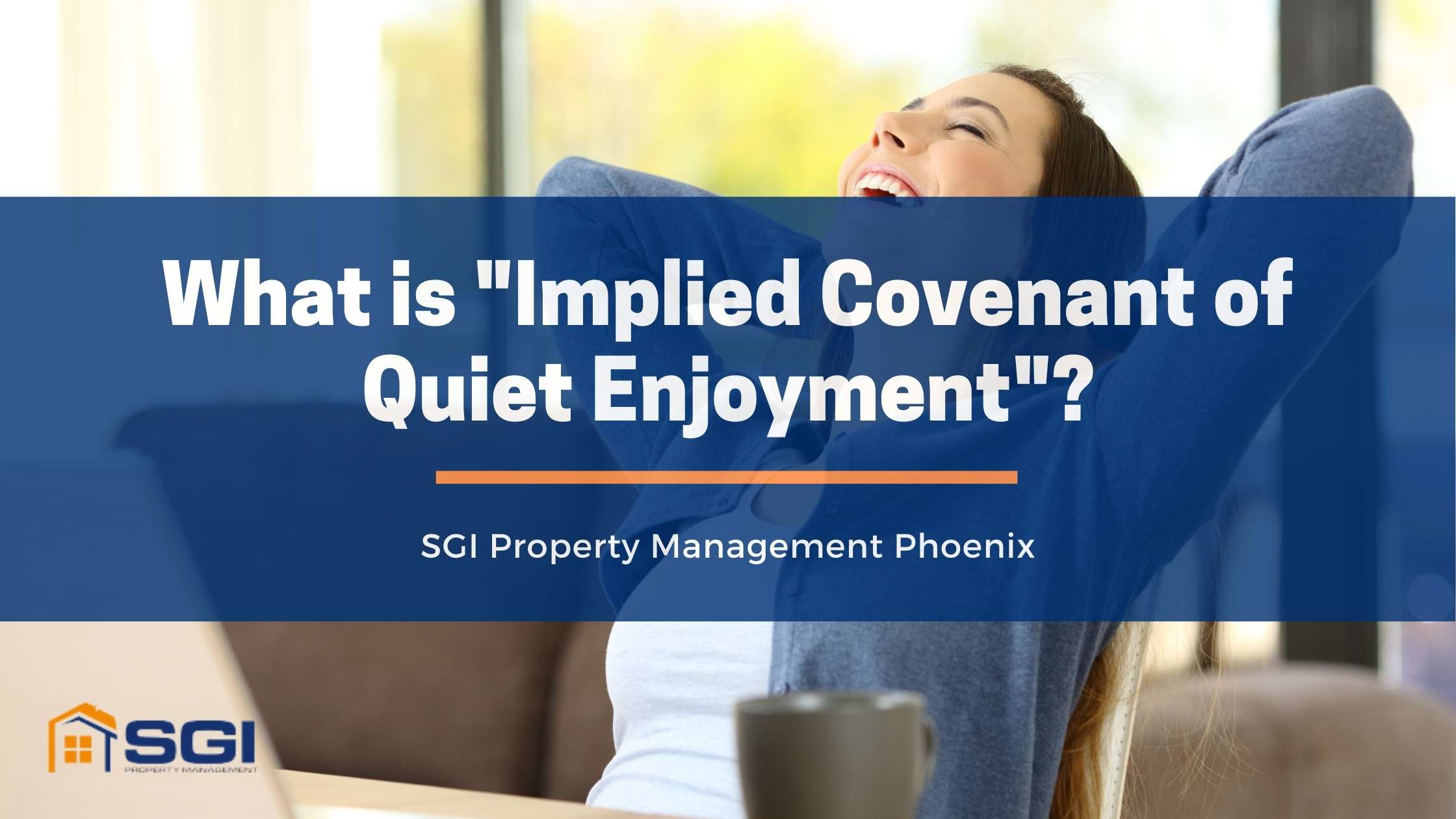
In the U.S., all tenants have a right to quiet enjoyment of their rented premises. Under an implied covenant or warranty, all lease agreements should include a statement regarding a tenant’s right to quiet enjoyment.
In other words, a tenant has a right to enjoy their rented premises without the landlord’s “substantial interference.” The goal of the covenant is to ensure that tenants benefit from the full use of their rental premises.
In this post, we will go over everything you need to know about the Implied Covenant of Quiet Enjoyment.
Keep on reading!
What Does “Implied” Mean?
An implied covenant is one that isn’t specifically stated in the lease agreement. Instead, it can be said verbally. In addition, as a landlord, you cannot coerce your tenant to waive the covenant.
What is the Meaning of “Quiet Enjoyment”?
“Quiet Enjoyment” is the tenant’s right to undisturbed use and enjoyment of their rented premises.
In the covenant of quiet enjoyment, the landlord makes a promise not to disturb the tenant during the term of the tenancy.
The following are the guarantees every lease or rental agreement gives tenants:
- Right to peace and quiet. Tenants have a right to live without disturbances from neighbors or the landlord.
- Right to live in privacy. Tenants have a right to ‘reasonable privacy, peace and comfort.’ As the landlord, you must not interfere, or even allow someone else to interfere, with the tenant’s privacy and comfort.
- Right to basic services. Your tenant has a right to basic services, such as electricity, heat and water.
- Right to live in a safe home. Landlords are also responsible for their tenants’ safety. You must provide a unit that is not only free from health hazards, but also from dangerous criminal activity.
- Right to exclusive use of the property. The only time the tenant can waive this right is when the landlord requires access to carry out important landlord responsibilities.

What Does “Landlord Entry” Mean?
Landlords have a right to enter rented premises under certain circumstances.
The following are some common reasons:
- To inspect the property. This helps landlords evaluate the overall condition of the rental premises.
- To perform any repairs that the tenant may have requested.
- To show the unit to prospective tenants, buyers, appraisers, mortgagees, and contractors or repairmen.
- To make property improvements.
- To provide essential services, such as delivering large packages that may not fit in a normal mailbox.
Although it’s your right to enter the tenant’s premises, you must ensure you do so under the confines of the law. Abusing that right can amount to landlord harassment.
Different states have different requirements when it comes to the notice periods. In the state of Arizona, landlords must provide their tenants with at least a 2-days’ notice prior to entry.
However, this can change if there’s an emergency or if the tenant agrees to a shorter notice period.
The time of entry must also be within reason. For example, it’s best to enter between 8 AM and 5 PM during weekdays and between 9AM and 3PM on weekends.
What is Considered Violation of the “Covenant of Quiet Enjoyment”?
The Implied Covenant of Quiet Enjoyment applies in situations that create legitimate disturbance.
The following are examples of common violations to the Covenant of Quiet Enjoyment:
- Entering the tenant’s premises too often and without a reasonable justification.
- Accessing the unit without notifying the tenant beforehand. As already mentioned, Arizona landlords must provide their tenants with a notice of at least 48 hours prior to entry.
- Prohibiting the tenant from enjoying their rented premises.
- Terminating essential services, such as electricity and water.

Are There Penalties for Violating the Covenant?
Yes, especially if you violate the covenant continually. Similar to tenant rights under the Warranty of Habitability, the tenant has different options to pursue.
If you violate the covenant, here are some of the things your tenant can do:
- Move out without any further lease obligations, like rent payment.
- Stop further rent payments until the landlord stops violating their fundamental right.
- Report the landlord to the appropriate government agency for action.
How can you Mitigate against a Breach to the Covenant of Quiet Enjoyment?
As a landlord, you have a responsibility to ensure that your tenants’ rights are protected. So, when a tenant has a legitimate concern, you should consider several options.
Here are some of the things you can do:
- Compensate the tenant
- Talk to the tenant/neighbor causing the disruption
- Evict the problem tenant

Bottom Line
Whether implied or expressly stated, your tenants have a right to the quiet and peaceful enjoyment of their rented premises.
Under the Implied Covenant of Quiet Enjoyment, a tenant has the right to:
- Peace and quiet
- Privacy
- Basic services
- Safety
- Exclusive use of the property
For more information, or for further help, contact an experienced property management company. At SGI Property Management Phoenix, we can help you comply with all rental laws.









